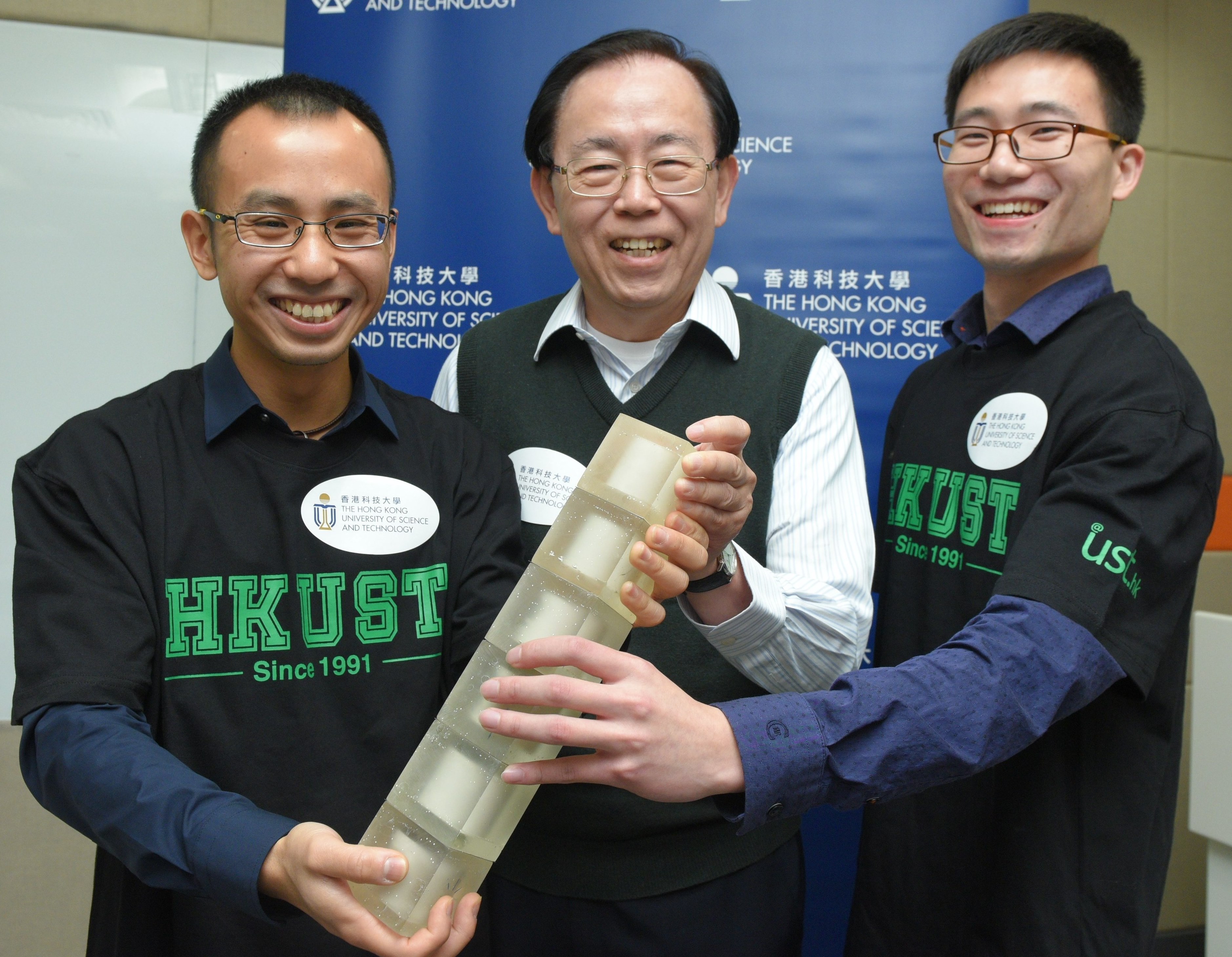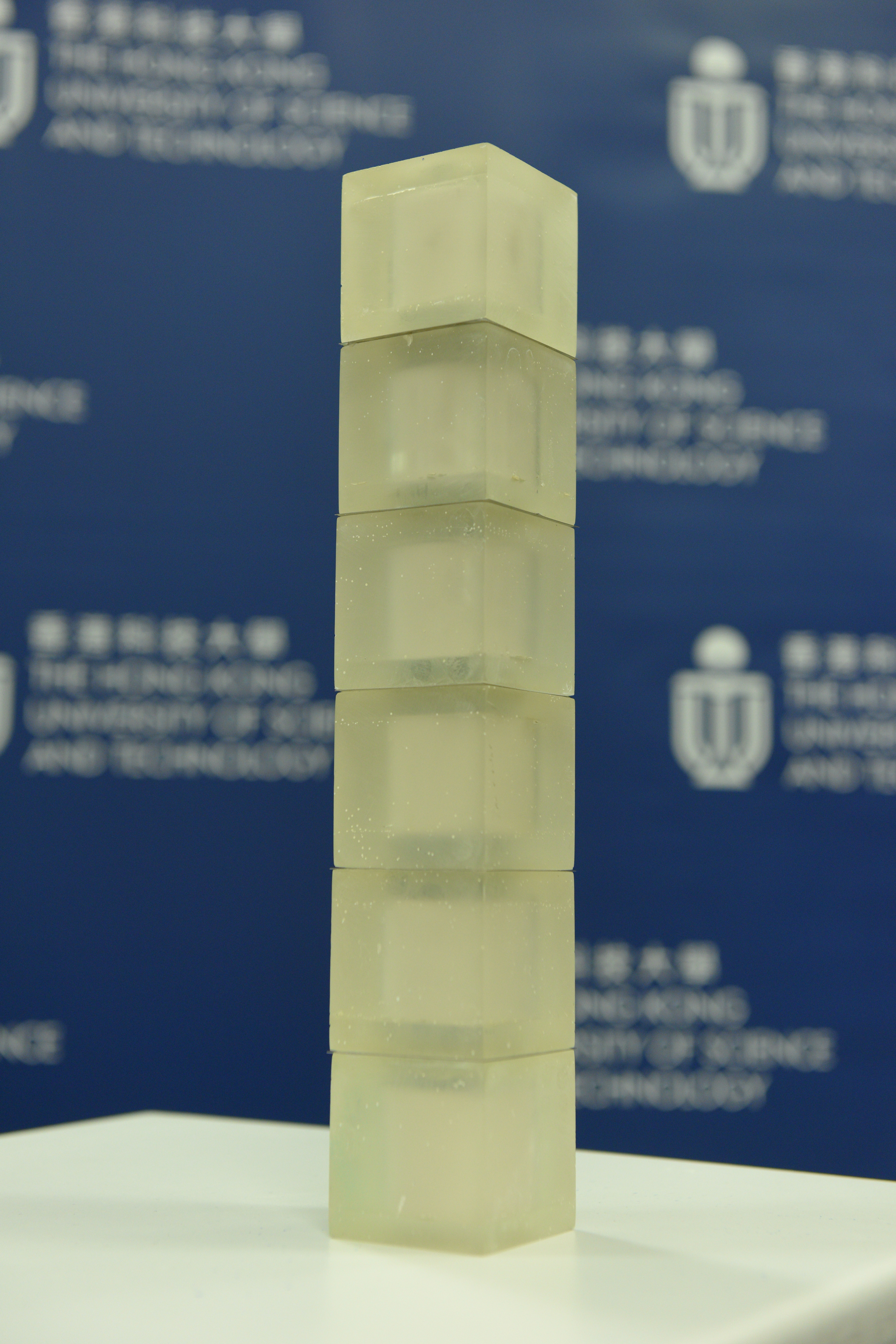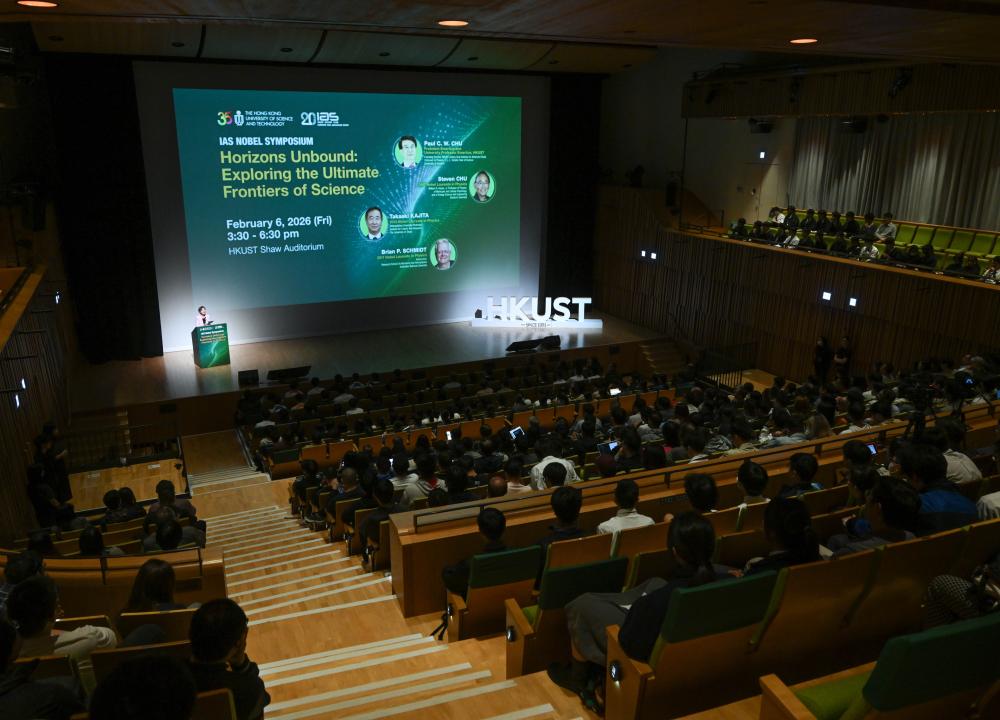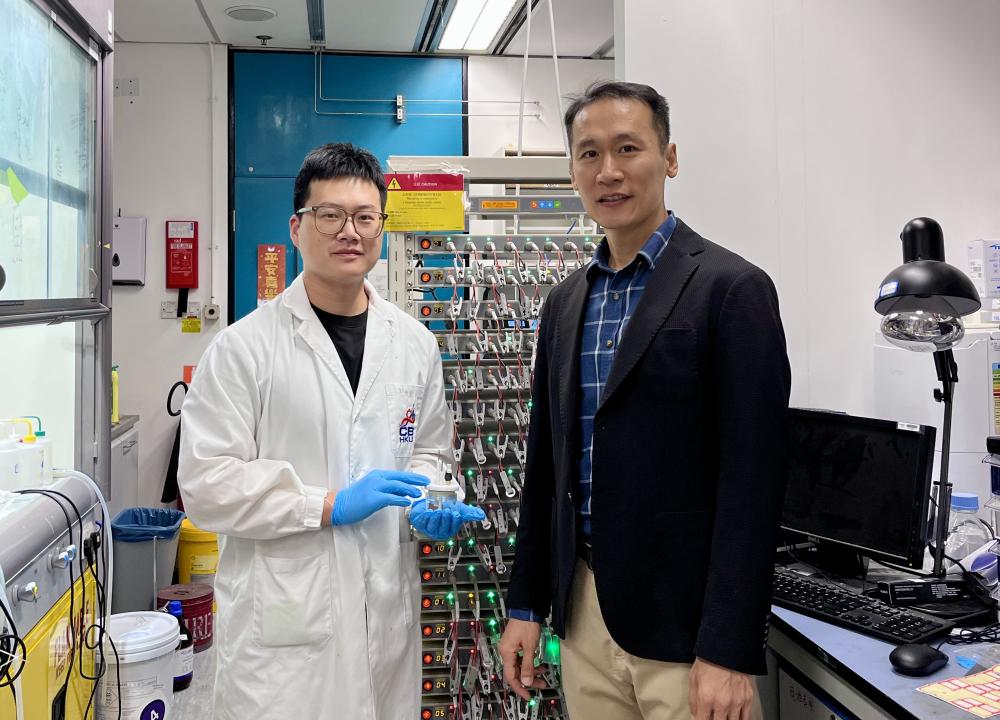HKUST Researchers Create Solid Metamaterials with Fluid-like Property that Can Be Used for Wave Filtering and May Help Protect Buildings from Earthquakes
The Hong Kong University of Science and Technology (HKUST) researchers have successfully created solid composite materials with the unique wave property of fluid, a property of which forbids the transmission of transverse waves. The transverse waves can lead to destructive horizontal shaking during earthquake. Such composite, also called “metamaterials”, can be used for wave filtering and vibration control, and may eventually provide an alternative earthquake proofing solution as well as improve the efficiency of medical ultrasound transducers.
The metamaterial created by the team is a composite of three solid materials– silicone-coated steel cylinders embedded in epoxy, in which the elastic silicone rubber layer with different thicknesses around the sides and on two ends of the cylinder acts like a spring. Harnessing the anisotropic resonances, the metamaterial, can only support longitudinal waves while forbids the propagation of transverse waves within a certain range of frequencies.
The scientific breakthrough was achieved by Dr Ma Guancong and Mr Fu Caixing in a team led by Prof Sheng Ping, Dr William M W Mong Professor of Nanoscience of Department of Physics. Prof Sheng said, ‘This particular metamaterial structure blurs the boundary between solid and fluid in terms of their wave properties, and opens a new area of solid elastic characteristics. The novel concept gives rise to new possibilities in vibration control and can potentially be applied to medical applications.’ Their research paper had been published in Nature Communications in last November.
Earthquake, according to a UN report, is the deadliest type of natural disaster. Design and materials used in constructing building in seismically prone areas are crucial to minimize damages. These state-of-the-art solid earthquake-resistant metamaterials is space-saving – can be incorporated into pillars and beams, and allow great flexibility for architectural design. The metamaterials may possibly be retro-fitted to existing structures for improving earthquake resistance.
The fluid-like property in solid may also be used for improving the efficiency of medical ultrasound transducers. As human tissues are elastically similar to water while ultrasonic transducers are of solid materials, the use of the metamaterials can make the solid wave characteristics better matched to those of water, thereby enhancing the coupling efficiency between the two by reducing energy loss, and leads to better signal-to-noise ratio for ultrasonic sensors.
Transverse and longitudinal waves are two basic types of wave motions. Solid materials can support the propagation of both waves, while the fluid materials block the transmission of transverse waves. The fluid-like wave property in solid composite is experimentally observed for the first time by the team. The research funding comes from Prof Chan Che-ting’s research project titled ‘Novel Wave Functional Materials for Manipulating Light and Sound’, which is supported by Areas of Excellence Scheme of Research Grants Council[1].
About The Hong Kong University of Science and Technology
The Hong Kong University of Science and Technology (HKUST) (www.ust.hk) is a world-class research university that focuses on science, technology and business as well as humanities and social science. HKUST offers an international campus, and a holistic and interdisciplinary pedagogy to nurture well-rounded graduates with global vision, a strong entrepreneurial spirit and innovative thinking. Renowned for its academic rigor and research accomplishments, HKUST attained the highest proportion of internationally excellent research work in the Research Assessment Exercise 2014 of Hong Kong’s University Grants Committee, and is the world’s second in the latest QS’ Top 50 under 50 ranking. Its graduates were ranked 13th worldwide and top in Greater China in Global Employability University Survey 2016, while the flagship Kellogg-HKUST EMBA program of its School of Business and Management was ranked No 1 seven times by Financial Times’ Global EMBA Rankings.
[1] The Grant number is AoE/P-02/12.
For media enquiries, please contact:














